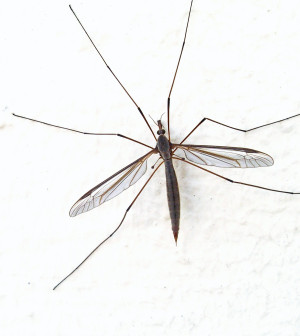- Could Your Grocery Store Meat Be Causing Recurring UTIs?
- Are You Making This Expensive Thermostat Error This Winter?
- Recognizing the Signs of Hypothyroidism
- 10 Strategies to Overcome Insomnia
- Could Artificial Sweeteners Be Aging the Brain Faster?
- Techniques for Soothing Your Nervous System
- Does the Water in Your House Smell Funny? Here’s Why
- Can a Daily Dose of Apple Cider Vinegar Actually Aid Weight Loss?
- 6 Health Beverages That Can Actually Spike Your Blood Sugar
- Treatment Options for Social Anxiety Disorder
FDA Approves New Vaccine to Protect Against Meningitis


A new vaccine that could help prevent some cases of life-threatening meningococcal disease was approved by the U.S. Food and Drug Administration on Wednesday.
Trumenba is approved to protect people between the ages of 10 and 25 from invasive meningococcal disease caused by Neisseria meningitidis serogroup B bacteria.
The bacteria can infect the bloodstream (sepsis) and the lining that surrounds the spinal cord and brain. It is a leading cause of bacterial meningitis, and infection can occur through coughing, kissing or sharing eating utensils.
Of the 500 cases of meningococcal disease reported in the United States in 2012, 160 were caused by serogroup B, according to the U.S. Centers for Disease Control and Prevention.
Antibiotics can reduce the risk of death or serious long-term problems in patients with meningococcal disease, but immediate medical treatment is crucial. Until now, vaccines in the United States covered four — A, C, Y and W — of the five main N. meningitidis serogroups that cause meningococcal disease.
“Recent outbreaks of serogroup B meningococcal disease on a few college campuses have heightened concerns for this potentially deadly disease,” Dr. Karen Midthun, director of the FDA’s Center for Biologics Evaluation and Research, said in an agency news release.
In 2013, outbreaks of meningitis at the University of California-Santa Barbara (UCSB) and Princeton University prompted those institutions to get special permission from the FDA to use a vaccine that had been sanctioned in Europe but not in the United States.
According to USA Today, a total of 12 cases occurred in those two outbreaks. A UCSB lacrosse player had to have his feet amputated due to the meningitis infection, the paper reported. Amputations occur because the bacteria can trigger blood clots that reduce blood flow and can cause gangrene.
However, Midthun said that “the FDA’s approval of Trumenba provides a safe and effective way to help prevent this disease in the United States.”
The FDA’s accelerated approval of the new vaccine from Wyeth Pharmaceuticals Inc. was based on three studies in the United States and Europe that included about 2,800 teens. After vaccination with Trumenba, 82 percent of the teens had antibodies in their blood that killed four different N. meningitidis serogroup B strains, compared with less than 1 percent of teens before vaccination.
The four strains targeted by the vaccine are the same ones that cause serogroup B meningococcal disease in the United States, according to the FDA.
The safety of Trumenba was assessed in 4,500 participants in studies in the United States, Europe and Australia. The most common side effects were pain and swelling at the injection site, headache, diarrhea, muscle and joint pain, fatigue and chills.
More information
The U.S. Centers for Disease Control and Prevention has more about meningococcal disease.
Source: HealthDay
Copyright © 2026 HealthDay. All rights reserved.










